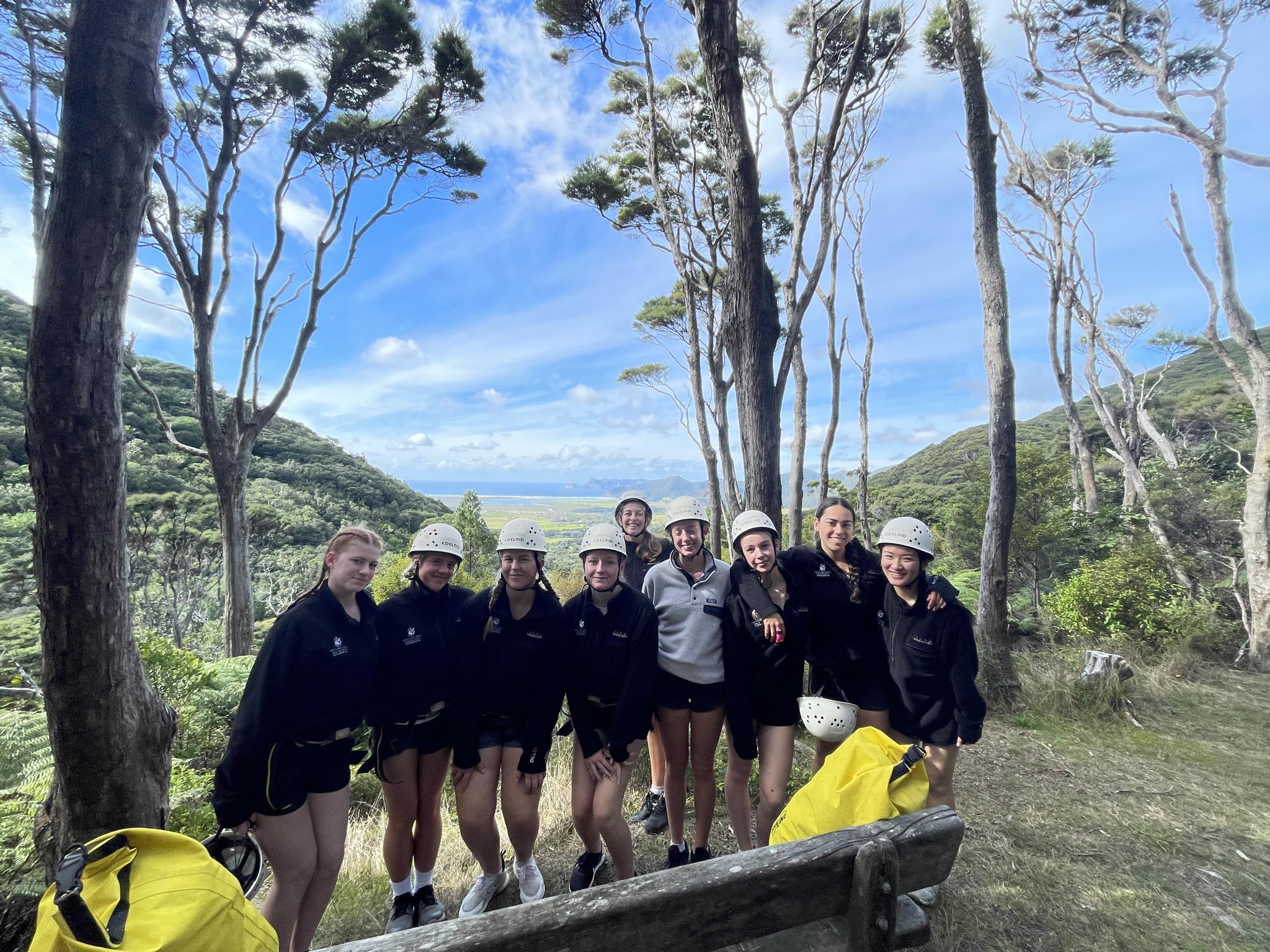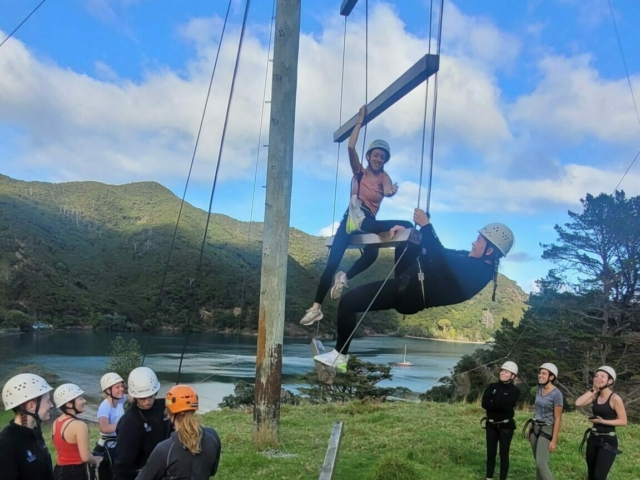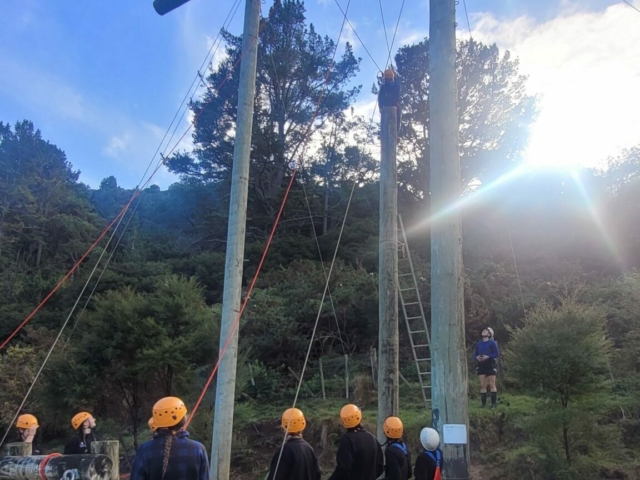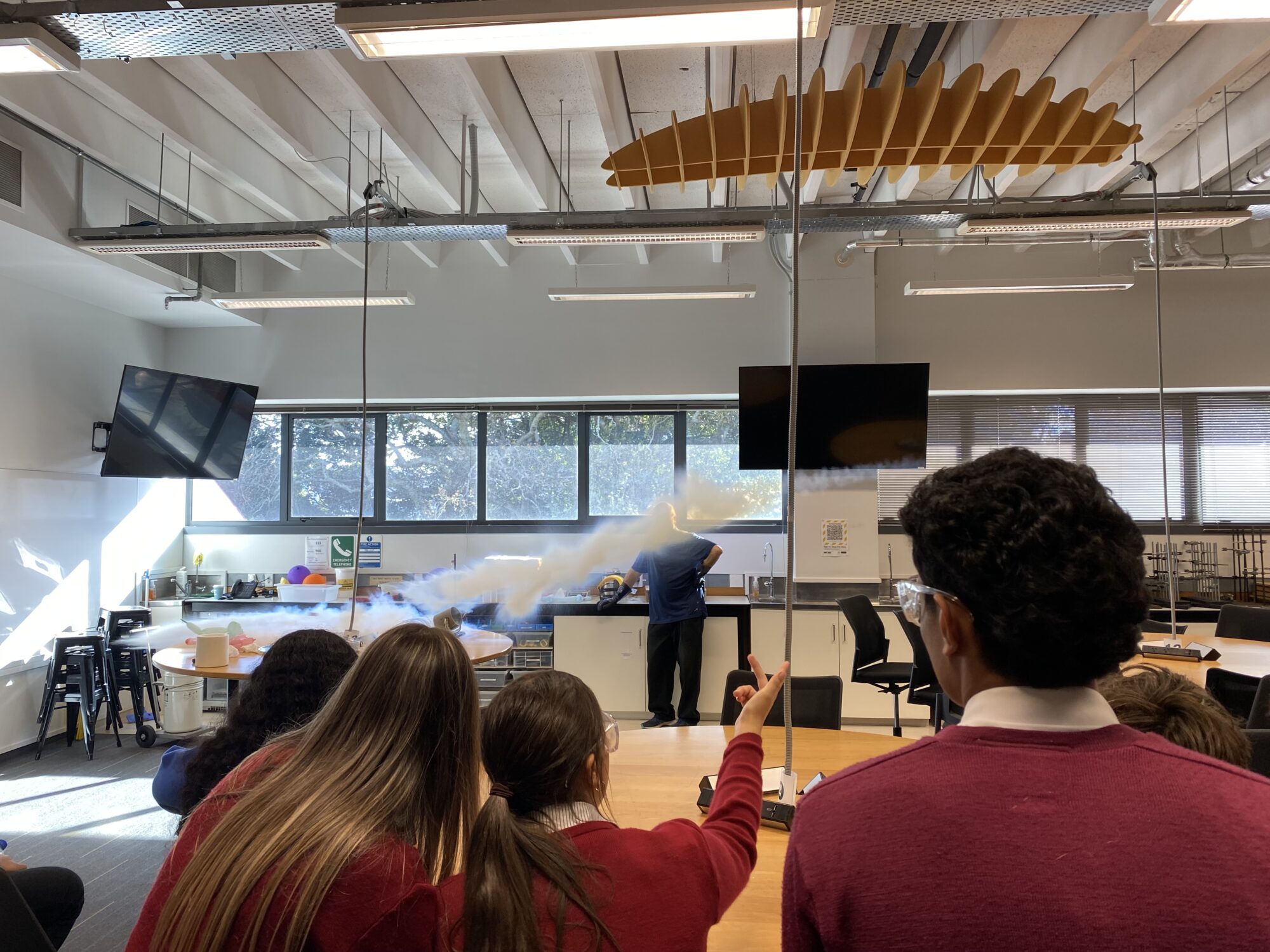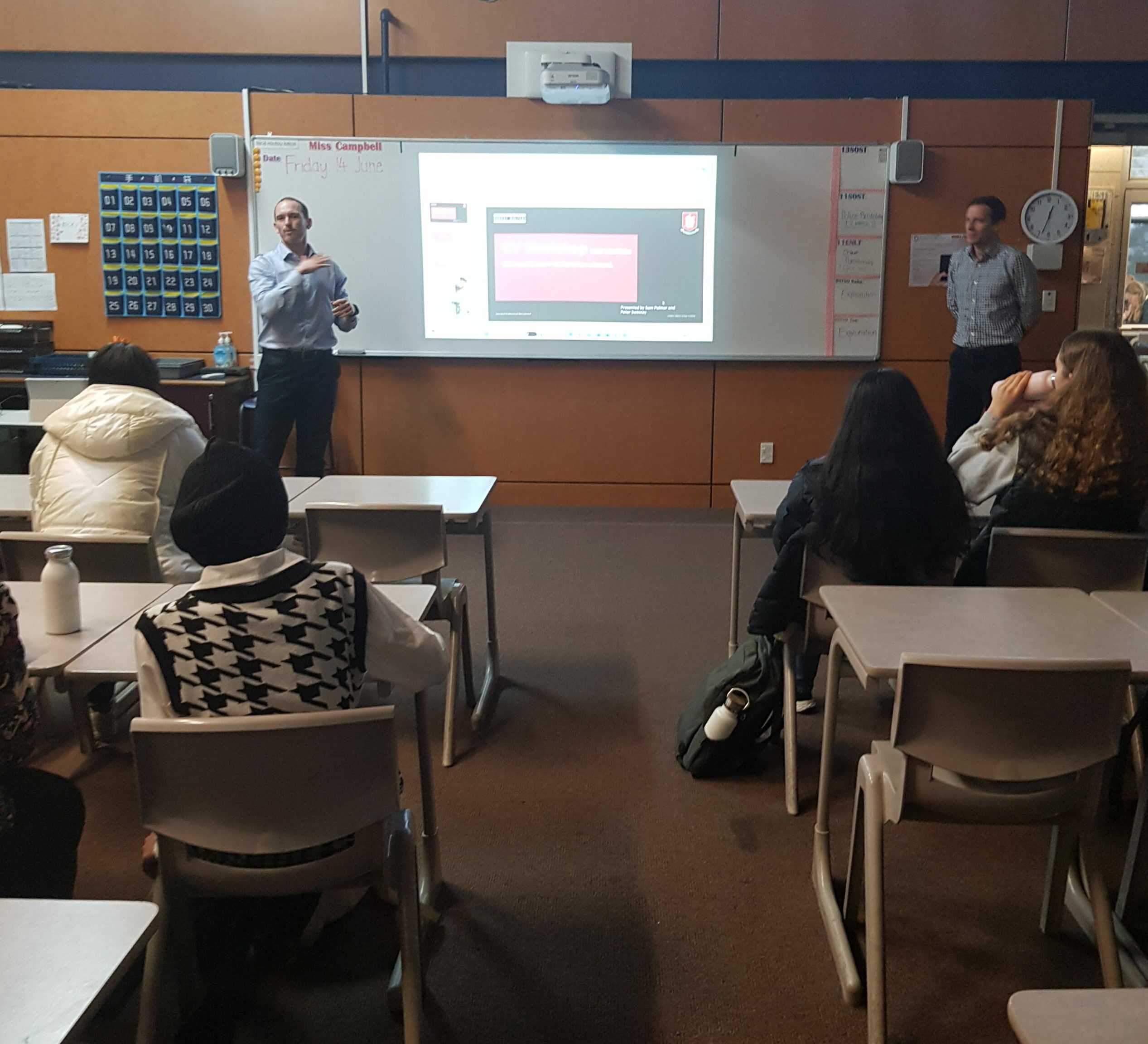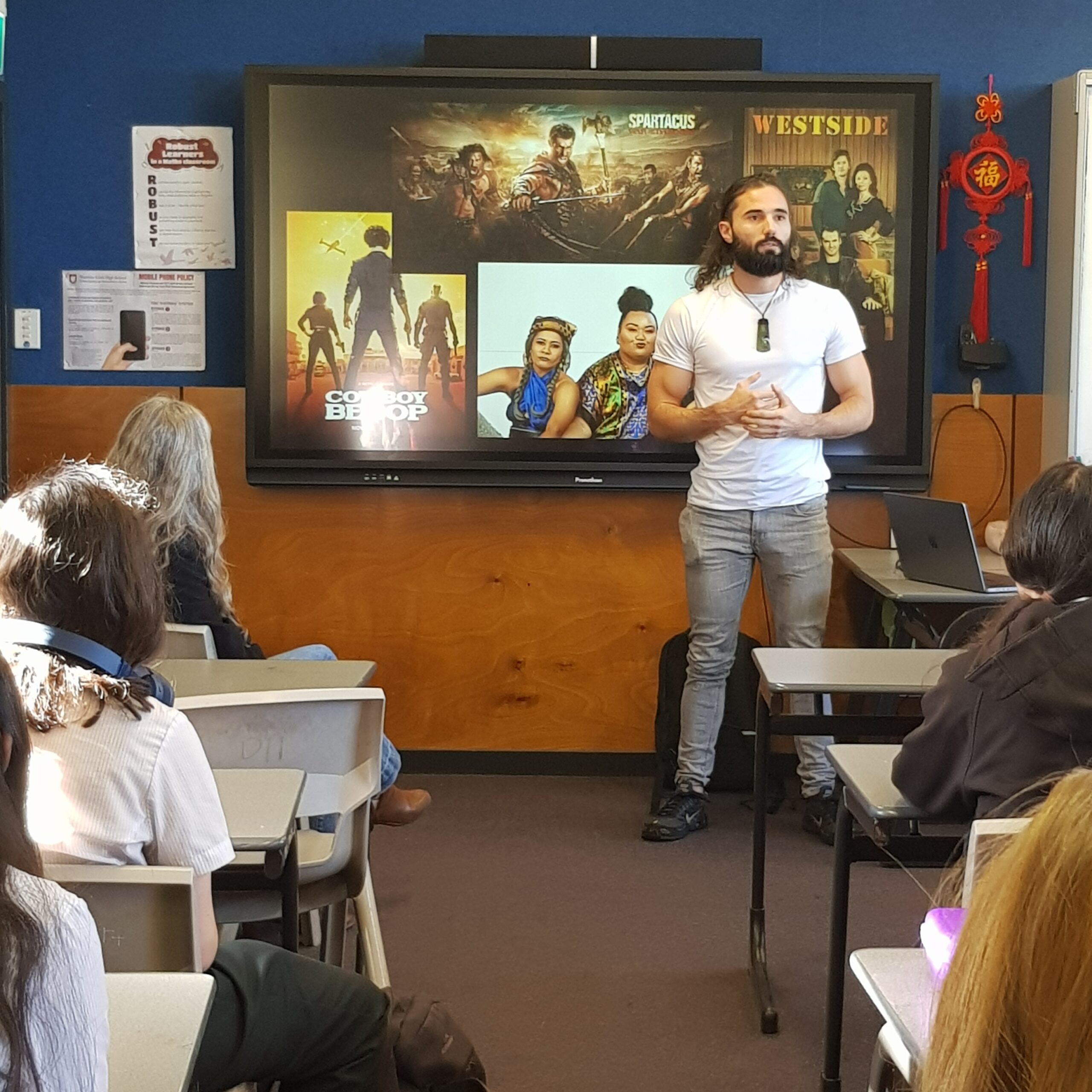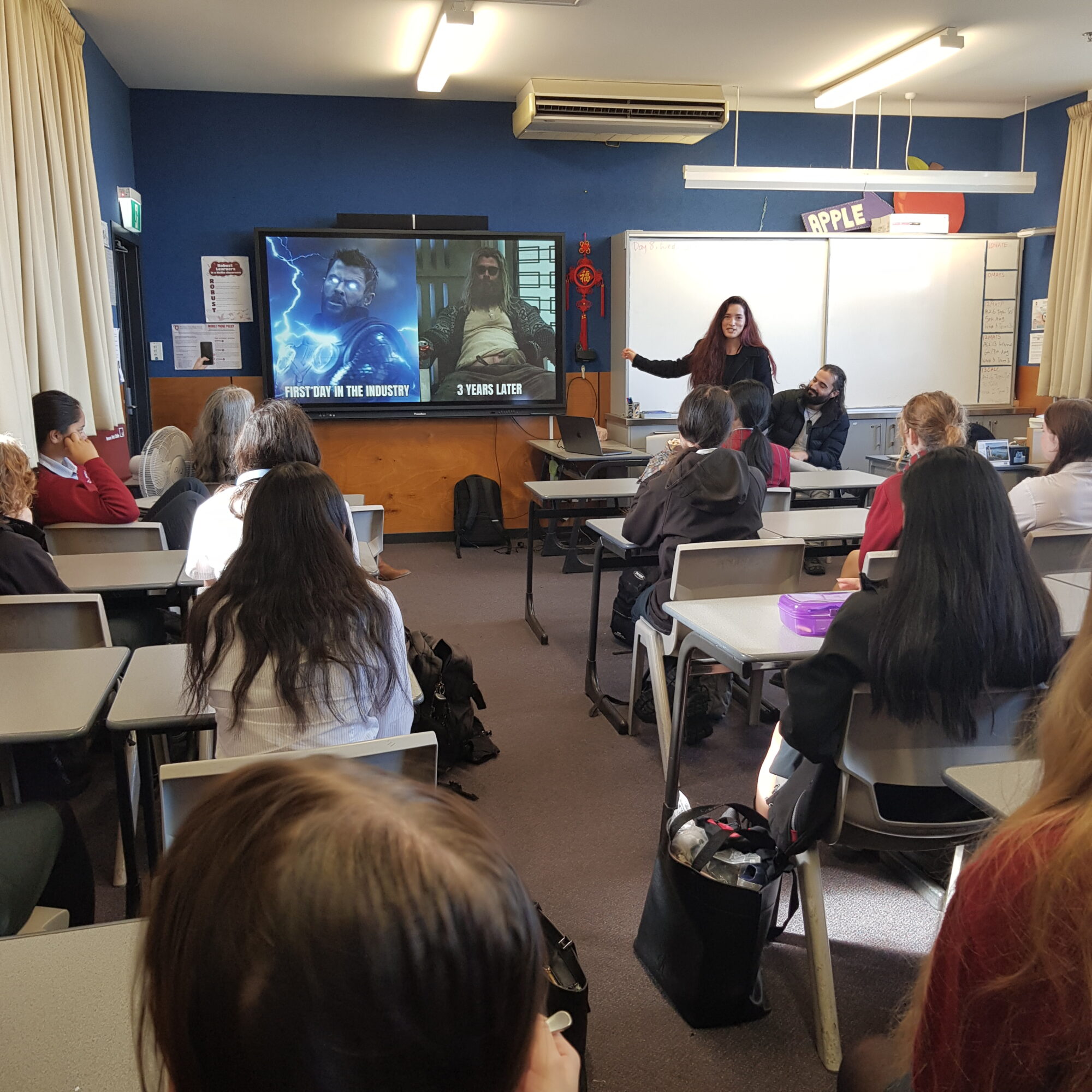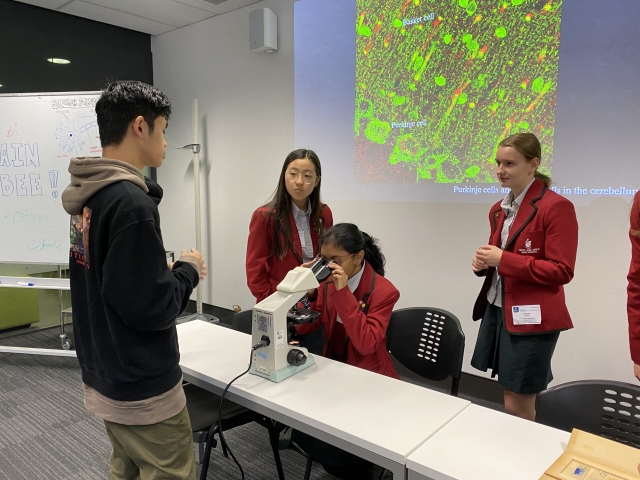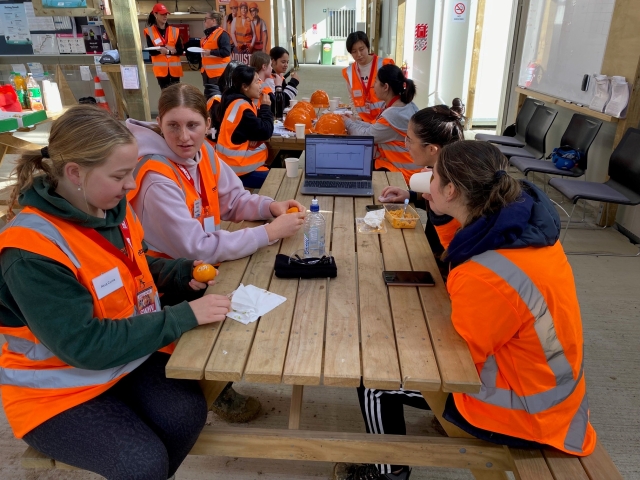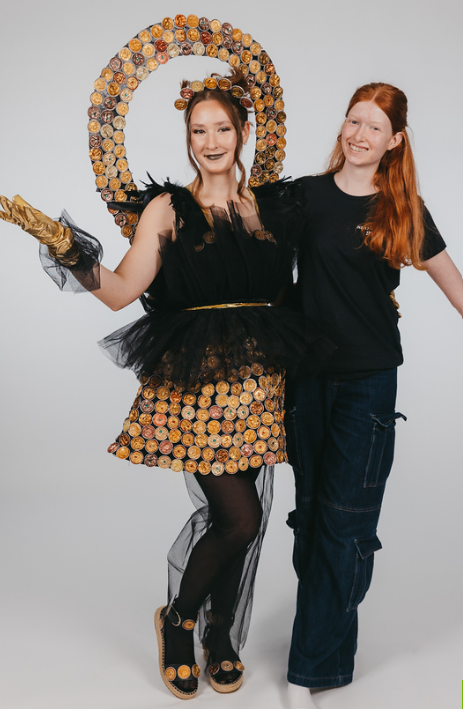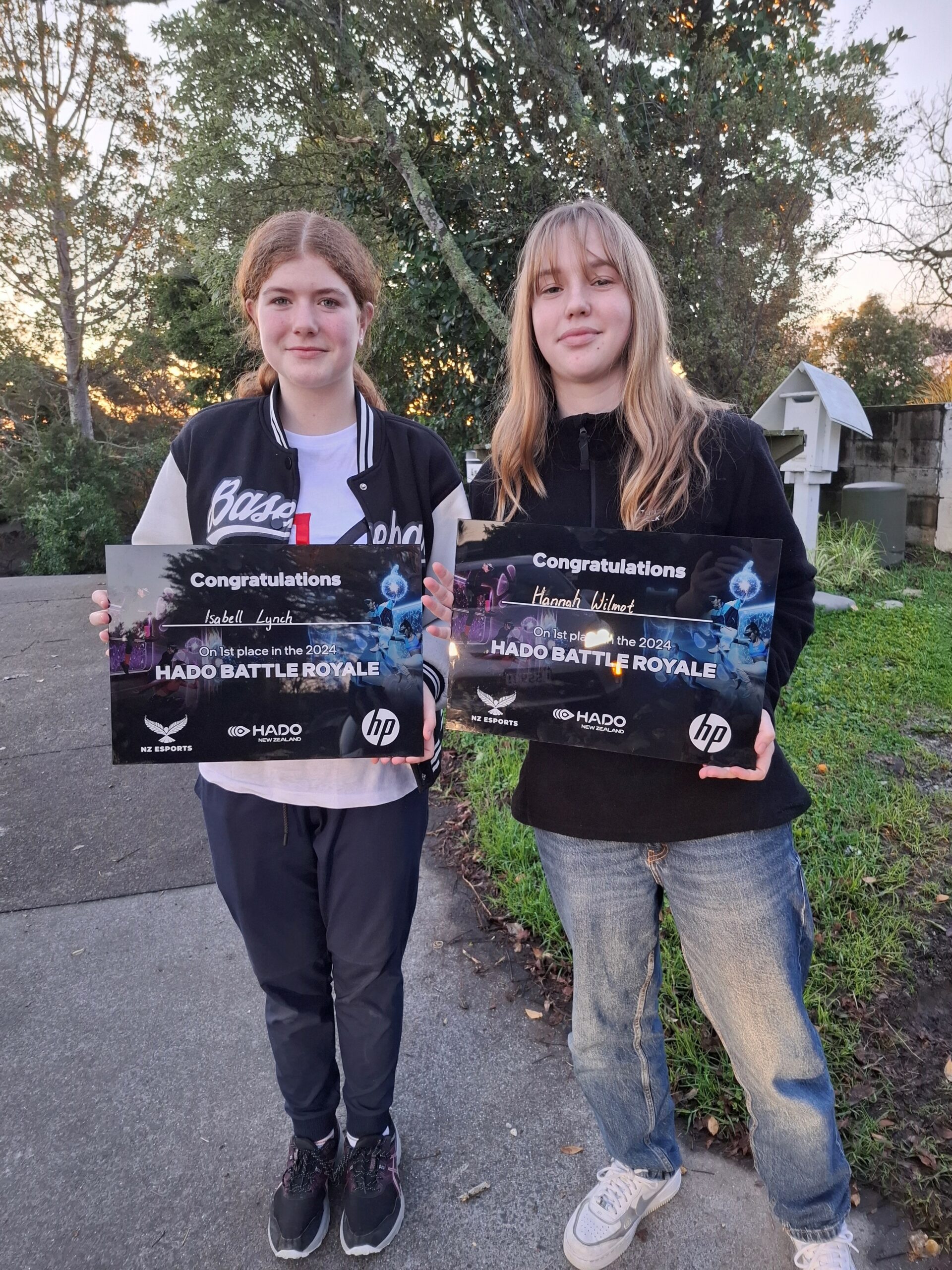Westlake Girls was recently lucky enough to have a visit from a Vet and a Vet Nurse, who spent time with interested students talking about their careers. The following is a write-up by two of those students.
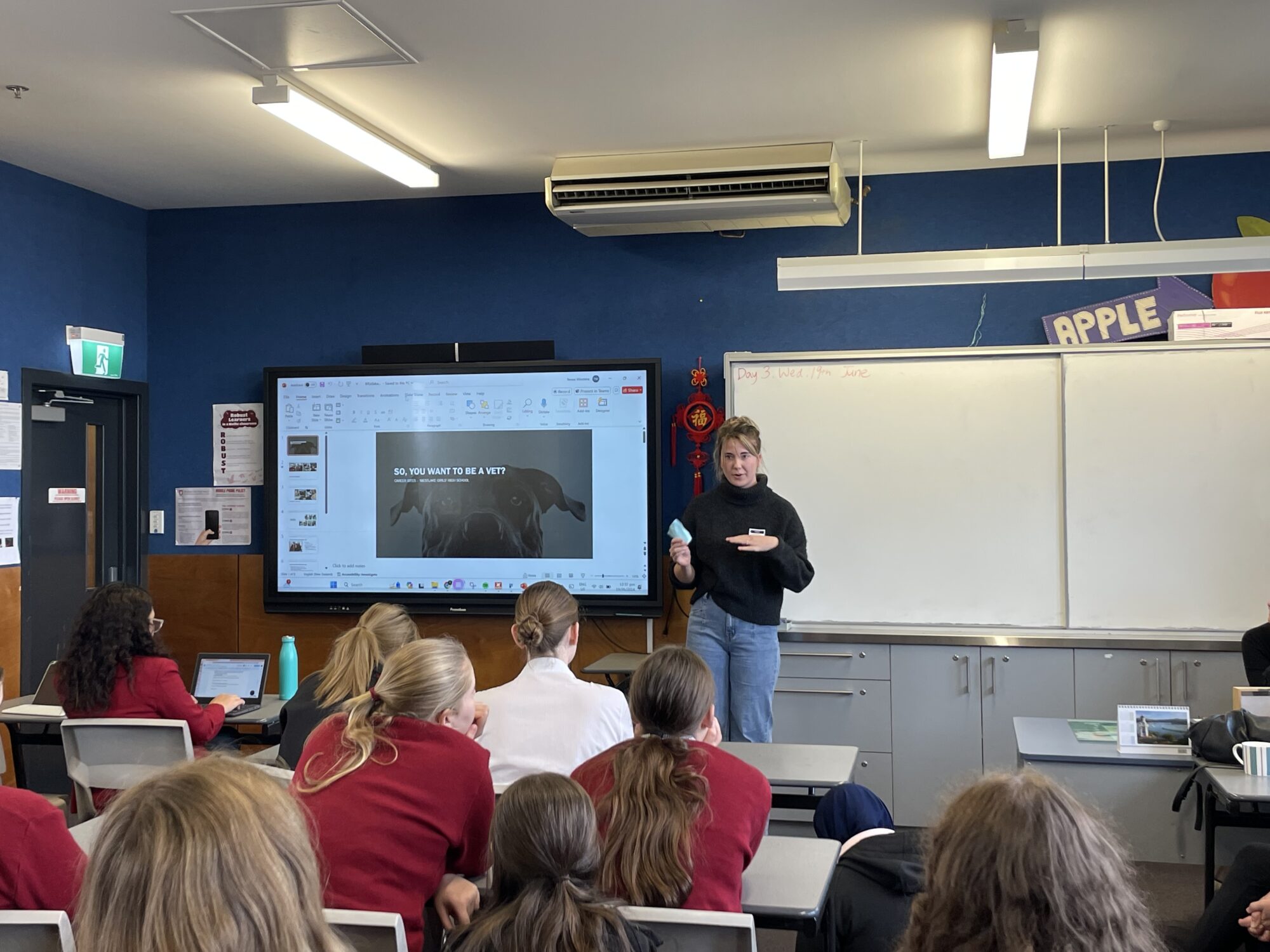
Letisha – Veterinarian Nurse
Ella – Veterinarian (Ex-Westlake student, eight years ago)
Instagram: @thepetdoc
What is your job now and how long have you been doing this job?
Letisha: Veterinarian Nurse in the East Coast Bays clinic.
Ella: Veterinarian who is currently working at her second clinic.
How did you decide to choose this career?
Letisha:
- She has always liked animals.
- She talked to someone who already did the vet course, which sparked her curiosity.
- She spent some time in a vet clinic, which inspired her further.
- She attended a career session similar to Career Bites at her school.
Ella:
- She has always wanted to be a vet.
- She did some work experience, like shadowing veterinarians, where she would spend a day with them.
What kind of education and/or training did your career require?
Letisha:
- 3 days experience in a clinic of your choice.
- 60 credits NCEA Level 2: 12 credits in Maths, English, and at least one Science each.
- She found chemistry helpful when going into veterinary training.
- It was required of her to provide a letter of recommendation from referrals.
- She completed a 5-year degree (2 years for a diploma, 3rd year for a bachelor’s degree) at Vet Nurse Plus. Other universities offering Vet Nurse training include UNITEC.
- She attained work experience by working at a clinic for 2 years.
Ella:
Recommended subjects:
- Massey University recommends: Level 3 Biology and Chemistry, Level 2 Physics, Level 2 Maths.
- Ella completed Level 3 Biology and Chemistry, Level 2 Physics, Level 3 Statistics, and Level 3 English.
- She completed a Bachelor of Veterinary Science (BVSc).
- Prerequisites during tertiary education include University Entrance and 40 hours of work experience.
- The degree offers 4 papers in total: 2x Biology-related, 1x Chemistry-related, and 1x Physics-related.
- The pre-selection phase (before you get accepted into vet school after pre-vet) lasts for about one semester (6 months). It includes an interview where interviewers provide a scenario to judge the candidate’s decision-making and problem-solving skills.
- “You need good grades for 1st sem. I remember that I had an average of A- but was still put on a waitlist.” – Ella.
- Professional phase: entry is based on academic performance, non-academic performance, and relevant experience (pre-vet experience). She was very busy in her first job in a Bay of Islands clinic.
- Graduates may wish to pursue further study, which amounts to approximately an additional 4 years of study for specialization, e.g., Veterinary Cardiology.
- Graduates could also choose to work in a lab as a pathologist.
- Veterinary opens up a wide branch of specialties where a graduate does not need to pursue “traditional veterinary.”
What skills are required in your daily work?
Ella:
- Communication: “You will need to talk to a lot of people, which is something that will come with experience.”
- Empathy: Toward both the animals (patients) and their owners.
- Dedication: “You don’t have to be smart, just dedicated.”
- Be a team player.
- Emotional resilience: Learning to cope with the emotional toll is essential in this job.
Describe a typical day of work.
Letisha:
Letisha’s working hours last from 7:30 am or 8 am to 4 pm.
- Rotations between different nursing roles, such as being:
- Consult Nurse: Assisting the Consult Vet, discussing animals’ cases and diagnoses.
- Surgical: Putting intravenous catheters (IVs) in, drawing medication, and preparing the animals for surgery.
- Anaesthetic: Monitoring the anaesthesia’s effect on the animal by monitoring blood pressure levels.
- Hospital Nurse: “Full on and a bit crazy sometimes,” they discharge and monitor the animals’ recovery, and perform post-surgery checking.
- “It’s really rewarding and every day is different, every day runs really fast.”
- “Vet nurses will always be on their feet.”
Ella:
Ella’s working hours last from 8 am to 5 pm or sometimes even 6 pm.
- “Every day’s a challenge, it is a demanding job.”
- As a veterinarian, she works in the emergency area, performs vaccine injections, attends to chronically sick animals and behavioral consults, and performs surgery.
What do you wish you would have known about your job before starting?
Ella:
- Expect an expensive student loan. She is currently paying off $90,000 worth of student loans.
- The challenges it will bring: “Not only battling and knowing everything, but you need to be able to communicate, talk about finance, know how to diagnose things, multitask and deal with the dynamics of a team, and the emotional side of how it can affect your mental wellbeing.”
- Working long hours in a day.
Do you mostly work alone or with others?
Both Letisha and Ella work together in a team, under the care and support of their local veterinarian clinics.
What do you love the most about your job?
Letisha:
“You keep working and keep learning. It’s a stable and reliable occupation.”
“Really fun and the work will pay for the job.”
Ella:
“It is very rewarding and very fun.”
“When I was sitting with you guys here (she is an ex-Westlake student) I would have never imagined that I’d be able to do all these cool things.”
“You need to love people too.”
If you could give me one piece of career advice, what would it be?
Ella:
- Seek shadowing and work experience opportunities so that you can gain insight into what a veterinarian does in real scenarios.
- Use counseling services. They offer 3 sessions per year for free.
- “Find a vet clinic that will support you and provide mentorship.”
- “Rewarding job but you can feel like you want to sit down in a room by yourself.”
- “It’s an emotional rollercoaster.”
- “Try not to bottle up things.”
- “It’s very normal to cry.”
By Vacky Oh 12HGY and Nicole Lao 11PFH









